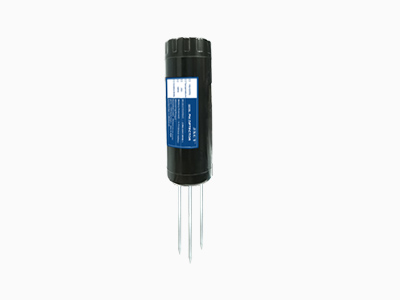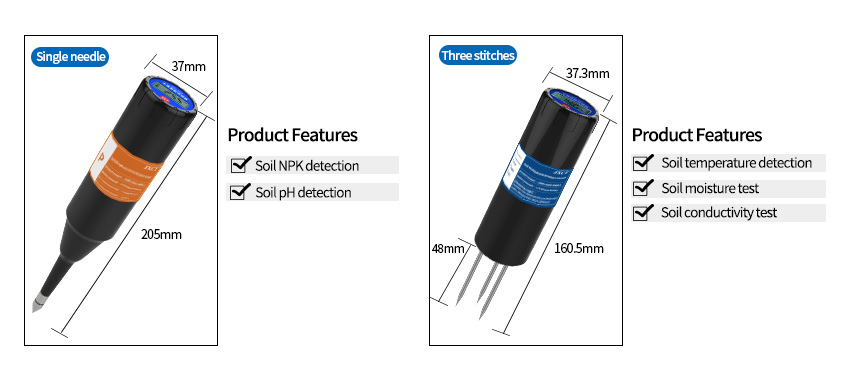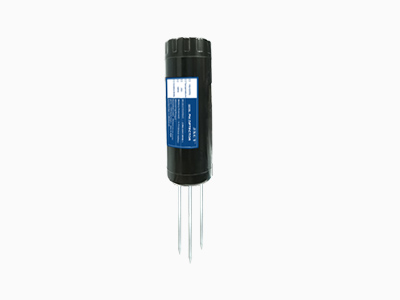Introduction Agriculture has been a fundamental part of human civilization for thousands of years, providing sustenance, livelihoods, and economic stability. As the global population continues to grow, the demand for food and agricultural products is increasing at an unprecedented rate. In order to meet this demand, farmers and agricultural professionals are turning to innovative technologies and practices to optimize their operations and maximize productivity. One such innovation that is revolutionizing agriculture is the use of soil sensors in precision farming.

Precision Farming:
A Paradigm Shift Precision farming, also known as precision agriculture, is a farming management concept that utilizes technology to ensure that crops and soil receive exactly what they need for optimum health and productivity. This approach represents a paradigm shift from traditional, blanket application of inputs such as water, fertilizers, and pesticides, to a more targeted and precise application based on real-time data and analysis. The integration of soil sensors into precision farming has played a pivotal role in this transformation, offering farmers unprecedented insights into soil health and environmental conditions.
The Role of Soil Sensors
Soil sensors are sophisticated devices designed to measure and monitor various parameters of the soil, including moisture levels, temperature, nutrient content, pH levels, and salinity. By deploying these sensors across their fields, farmers can gather precise, real-time data on the conditions of their soil, enabling them to make informed decisions about irrigation, fertilization, and other agronomic practices. This targeted approach not only optimizes resource utilization but also minimizes environmental impact, making agriculture more sustainable and efficient.
Improving Water Management One of the most significant benefits
of soil sensors in precision farming is their ability to improve water management. By continuously monitoring soil moisture levels, farmers can accurately determine when and how much water their crops need. This data-driven approach allows for precise irrigation scheduling, reducing water waste and energy consumption associated with unnecessary irrigation. Additionally, by avoiding overwatering, farmers can prevent soil erosion and nutrient leaching, preserving the long-term health of their fields.
Enhancing Nutrient Management Soil sensors also play a crucial role
in enhancing nutrient management in agriculture. By measuring the nutrient content and pH levels of the soil, farmers can tailor their fertilization strategies to match the specific needs of their crops. This targeted approach not only maximizes the effectiveness of fertilizers but also reduces the risk of nutrient runoff and pollution of water bodies. Furthermore, by optimizing nutrient management, farmers can improve crop yields and quality while minimizing the environmental impact of their agricultural practices.
Optimizing Crop Health and Productivity In addition to water and nutrient management
soil sensors contribute to optimizing overall crop health and productivity. By monitoring soil temperature and salinity, farmers can identify potential stress factors affecting their crops and take proactive measures to mitigate them. Furthermore, soil sensors can provide early warnings of pest infestations and diseases, enabling farmers to implement timely interventions and protect their crops from damage. By leveraging the insights provided by soil sensors, farmers can optimize growing conditions, leading to healthier, more resilient crops and improved yields.
Data-Driven Decision Making The integration
of soil sensors into precision farming enables data-driven decision making, empowering farmers with actionable insights to optimize their agricultural practices. By collecting and analyzing real-time soil data, farmers can make informed decisions about irrigation scheduling, fertilization, and crop management. Furthermore, the use of advanced analytics and machine learning algorithms can help farmers identify patterns and trends in soil health and crop performance, enabling them to continuously refine their strategies for maximum efficiency and productivity.
Challenges and Opportunities While soil sensors have the
potential to revolutionize agriculture, their widespread adoption faces certain challenges. Cost, accessibility, and technical expertise are significant barriers for many farmers, particularly those in developing regions. Addressing these challenges requires concerted efforts from governments, agricultural organizations, and technology providers to make soil sensor technology more affordable, user-friendly, and accessible to farmers of all scales. Additionally, there is a need for comprehensive training and support to ensure that farmers can effectively leverage soil sensor data to improve their farming practices.
Despite these challenges
the opportunities presented by soil sensors in precision farming are immense. As technology continues to advance, soil sensors are becoming more affordable, accurate, and easy to use. Furthermore, the integration of soil sensor data with other precision agriculture technologies, such as drones, satellite imagery, and automated machinery, holds the potential to create a fully interconnected and data-driven agricultural ecosystem. By embracing these opportunities, farmers can unlock new levels of efficiency, sustainability, and productivity in their operations.
Conclusion The role of soil sensors in precision farming is transformative
offering farmers the tools they need to optimize resource utilization, minimize environmental impact, and maximize productivity. By harnessing real-time soil data, farmers can make informed decisions that benefit both their bottom line and the environment. As technology continues to evolve, the potential of soil sensors in revolutionizing agriculture will only continue to grow, paving the way for a more sustainable, efficient, and resilient agricultural industry. With continued innovation, collaboration, and support, soil sensors will undoubtedly play a central role in shaping the future of farming for generations to come.
In conclusion
the integration of soil sensors in precision farming represents a pivotal advancement in agricultural technology, enabling farmers to make data-driven decisions that optimize resource utilization, minimize environmental impact, and maximize productivity. As the agricultural industry continues to evolve, soil sensors will undoubtedly play a central role in shaping the future of farming for generations to come.

Overall, soil sensors are revolutionizing agriculture by providing farmers with unprecedented insights into soil health and environmental conditions, enabling them to make informed decisions about irrigation, fertilization, and other agronomic practices. This transformative technology has the potential to enhance water management, nutrient management, and overall crop health and productivity, while also empowering farmers with data-driven decision making. Despite certain challenges, the opportunities presented by soil sensors in precision farming are immense, and with continued innovation and support, they will undoubtedly play a central role in shaping the future of farming for generations to come.
